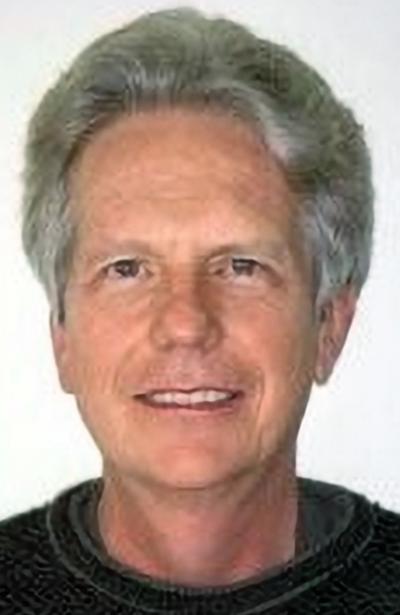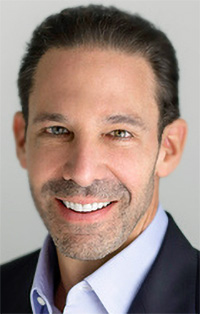

 No. Now, thank you for your attention. Last year, some security researchers were discussing a doomsday scenario, that without investing in quantum encryption, there would soon be no way to feel secure over the Internet. (I would add, that a feeling of security over the Internet is misleading at best.) Allow me to break down some of these security peculiarities, which could be worrisome. more
No. Now, thank you for your attention. Last year, some security researchers were discussing a doomsday scenario, that without investing in quantum encryption, there would soon be no way to feel secure over the Internet. (I would add, that a feeling of security over the Internet is misleading at best.) Allow me to break down some of these security peculiarities, which could be worrisome. more
 The .ORG Stewardship Council is, in a lot of ways, a natural progression or evolution from our current PIR Advisory Council. The Advisory Council is made up of independent .ORG community members from around the world that provide advice to PIR on policy issues affecting them. The "AC," or the Advisory Council, has been a key part of PIR's work since its inception. more
The .ORG Stewardship Council is, in a lot of ways, a natural progression or evolution from our current PIR Advisory Council. The Advisory Council is made up of independent .ORG community members from around the world that provide advice to PIR on policy issues affecting them. The "AC," or the Advisory Council, has been a key part of PIR's work since its inception. more
 Since Ethos announced its investment in PIR last fall, Ethos has welcomed the opportunity to engage with .ORG registrants and users to hear their ideas and answer their questions. We listened to concerns expressed in the community, and we worked to address them. We announced a number of voluntary commitments that Ethos is prepared to make, and then we listened to feedback from the community on the scope of those commitments, as well as on the enforceability of those commitments. more
Since Ethos announced its investment in PIR last fall, Ethos has welcomed the opportunity to engage with .ORG registrants and users to hear their ideas and answer their questions. We listened to concerns expressed in the community, and we worked to address them. We announced a number of voluntary commitments that Ethos is prepared to make, and then we listened to feedback from the community on the scope of those commitments, as well as on the enforceability of those commitments. more
 As we reported in our Post-GDPR Compliance Rate retrospective in January 2020, registrar compliance rates in response to verified requests for redacted registrant information using the Appdetex WHOIS Requestor System was 25 percent. Our most recent report shows the compliance rate has increased to 27 percent, based upon a total of 243 requests for redacted WHOIS information sent to 68 registrars over the period starting January 1, 2020, through February 24, 2020. more
As we reported in our Post-GDPR Compliance Rate retrospective in January 2020, registrar compliance rates in response to verified requests for redacted registrant information using the Appdetex WHOIS Requestor System was 25 percent. Our most recent report shows the compliance rate has increased to 27 percent, based upon a total of 243 requests for redacted WHOIS information sent to 68 registrars over the period starting January 1, 2020, through February 24, 2020. more
 In direct response to the enormous interest and input we have seen from the .ORG community over the past several months, Ethos and Public Interest Registry (PIR) have made tremendous strides in laying out our collective vision for .ORG and put forth unprecedented commitments and protections for the .ORG community. Over the last two weeks, in particular, we have taken concrete actions to better align the community's interests with the operations of PIR and .ORG. more
In direct response to the enormous interest and input we have seen from the .ORG community over the past several months, Ethos and Public Interest Registry (PIR) have made tremendous strides in laying out our collective vision for .ORG and put forth unprecedented commitments and protections for the .ORG community. Over the last two weeks, in particular, we have taken concrete actions to better align the community's interests with the operations of PIR and .ORG. more
 Mr. Arif Ali, a lawyer with Dechert who is very familiar with ICANN governance and has represented numerous parties in ICANN related matters, wrote an extraordinarily detailed and comprehensive critique of the LOI and of Amendment 3. Mr. Ali noted that two of ICANN's most important obligations are to operate for the benefit of the Internet community as a whole and to enable competition and open entry in Internet-related markets, and that the proposed price hikes do not support these obligations... more
Mr. Arif Ali, a lawyer with Dechert who is very familiar with ICANN governance and has represented numerous parties in ICANN related matters, wrote an extraordinarily detailed and comprehensive critique of the LOI and of Amendment 3. Mr. Ali noted that two of ICANN's most important obligations are to operate for the benefit of the Internet community as a whole and to enable competition and open entry in Internet-related markets, and that the proposed price hikes do not support these obligations... more
 ICANN's call for Public Comment on Proposed Amendment 3 to the .com Registry Agreement yielded 9,040 public comments during the six-week comment period that ran from January 3, 2020 to February 14, 2020. The public response was amongst the most robust if not the most robust, that ICANN has ever received. To put this in context, the last several Public Comment periods received under 20 comments apiece. more
ICANN's call for Public Comment on Proposed Amendment 3 to the .com Registry Agreement yielded 9,040 public comments during the six-week comment period that ran from January 3, 2020 to February 14, 2020. The public response was amongst the most robust if not the most robust, that ICANN has ever received. To put this in context, the last several Public Comment periods received under 20 comments apiece. more
 The Geely Holding Group (GHG) is a private Chinese conglomerate that is highly diversified but best known as an auto manufacturer that envisions itself as a "global mobile technology group." GHG announced this week that it has begun construction of an intelligent satellite production and testing facility that will include modular satellite manufacturing, satellite testing, satellite R&D, and cloud computing centers.
The Geely Holding Group (GHG) is a private Chinese conglomerate that is highly diversified but best known as an auto manufacturer that envisions itself as a "global mobile technology group." GHG announced this week that it has begun construction of an intelligent satellite production and testing facility that will include modular satellite manufacturing, satellite testing, satellite R&D, and cloud computing centers.
Update Mar 2, 2024:
Geely launched eleven satellites in the same 50-degree inclination plane as the first nine, but there was a considerable delay between the two launches. The first nine were launched in June 2022 and the second 11 were launched in February 2024. The delay may have been caused by a satellite re-design -- The mass of these satellites is 130 kg whereas the first nine satellites had masses of 100 kg.
The launch cadence will have to speed up if they are to reach their goal of beginning service with 72 t satellites next year. more
 Cisco has changed the name of its periodic predictions of broadband usage from the Visual Networking Index to the Annual Broadband Report, and recently issued a report that covers the period from 2018 to predictions made through 2023. Cisco is one of the few industry players that projects future broadband usage. Their past reports have been spot on in terms of predicting future broadband usage. more
Cisco has changed the name of its periodic predictions of broadband usage from the Visual Networking Index to the Annual Broadband Report, and recently issued a report that covers the period from 2018 to predictions made through 2023. Cisco is one of the few industry players that projects future broadband usage. Their past reports have been spot on in terms of predicting future broadband usage. more
 When you go to the doctor for a yearly checkup, do you think about health or insurance? You probably think about health, but the practice of going to the doctor for regular checkups began because of large life insurance companies in the United States. These companies began using statistical methods to make risk or to build actuarial tables they could use to set the premiums properly. Originally, life insurance companies relied on the "hunches" of their salesmen, combined with... more
When you go to the doctor for a yearly checkup, do you think about health or insurance? You probably think about health, but the practice of going to the doctor for regular checkups began because of large life insurance companies in the United States. These companies began using statistical methods to make risk or to build actuarial tables they could use to set the premiums properly. Originally, life insurance companies relied on the "hunches" of their salesmen, combined with... more
 Like the Coronavirus, 5G Dementia seems to be spreading around Washington. The latest manifestation has appeared at the FCC -- which is trying its best to make U.S. 5G infrastructure as insecure and primitive as possible. But first, an explanation of how 5G Dementia begins at the top and spreads in the U.S. capitol. 5G Dementia begins with "The Genius" who lounges around White House quarters and emits spontaneous tweets on whatever motivates him at the moment. more
Like the Coronavirus, 5G Dementia seems to be spreading around Washington. The latest manifestation has appeared at the FCC -- which is trying its best to make U.S. 5G infrastructure as insecure and primitive as possible. But first, an explanation of how 5G Dementia begins at the top and spreads in the U.S. capitol. 5G Dementia begins with "The Genius" who lounges around White House quarters and emits spontaneous tweets on whatever motivates him at the moment. more
 I've wondered for years about why broadband prices are higher in the U.S. than the rest of the world. The average price in other industrial counties is significantly lower. In France, broadband averages $31, Germany is $35, Japan is $35, South Korea is $33, and the U.K. is $35. The average price of broadband in the U.S. is approaching $70, so we're at twice the price as other countries. more
I've wondered for years about why broadband prices are higher in the U.S. than the rest of the world. The average price in other industrial counties is significantly lower. In France, broadband averages $31, Germany is $35, Japan is $35, South Korea is $33, and the U.K. is $35. The average price of broadband in the U.S. is approaching $70, so we're at twice the price as other countries. more
 The discussion about the future of the .ORG domain registry has been partly rooted in stewardship. Who will guide the Public Interest Registry (PIR) so it continues to serve the .ORG community? For those of us at Ethos Capital, the company acquiring PIR, this has been a central focus. We understand that owning PIR makes us stewards of an essential part of the fabric of the Internet. more
The discussion about the future of the .ORG domain registry has been partly rooted in stewardship. Who will guide the Public Interest Registry (PIR) so it continues to serve the .ORG community? For those of us at Ethos Capital, the company acquiring PIR, this has been a central focus. We understand that owning PIR makes us stewards of an essential part of the fabric of the Internet. more
 On February 11th, Professor Ben Leff of American University Washington College of Law (WCL) spoke on the panel: The Controversial Sale of the .ORG Registry: The Conversation We Should be Having as a scholar of charitable and nonprofit law. On February 21st, he posted a blog piece on WCL's PIJIP blog outlining and expanding his presentation. With Professor Leff's permission, I repost his piece on CircleID to join the timely discussion taking place here on the .ORG sale. more
On February 11th, Professor Ben Leff of American University Washington College of Law (WCL) spoke on the panel: The Controversial Sale of the .ORG Registry: The Conversation We Should be Having as a scholar of charitable and nonprofit law. On February 21st, he posted a blog piece on WCL's PIJIP blog outlining and expanding his presentation. With Professor Leff's permission, I repost his piece on CircleID to join the timely discussion taking place here on the .ORG sale. more
 Last fall, when we put forth our bid to acquire the Public Interest Registry (PIR), our announcement - made jointly with PIR and its parent, the Internet Society - was met with questions. We took them seriously and made a conscious effort to engage with representative members of the .ORG community to deepen our understanding. We found that a consistent message was that the commitments made by Ethos since this fall addressed most of the community's issues, but there was a question as to whether they were enforceable and if so, how? more
Last fall, when we put forth our bid to acquire the Public Interest Registry (PIR), our announcement - made jointly with PIR and its parent, the Internet Society - was met with questions. We took them seriously and made a conscious effort to engage with representative members of the .ORG community to deepen our understanding. We found that a consistent message was that the commitments made by Ethos since this fall addressed most of the community's issues, but there was a question as to whether they were enforceable and if so, how? more
Sponsored byVerisign

Sponsored byIPv4.Global

Sponsored byWhoisXML API

Sponsored byVerisign

Sponsored byCSC

Sponsored byRadix

Sponsored byDNIB.com
